75.6% of agency leaders say they plan to increase investment in AI tools in the next 12 months, according to Basis Technologies,
9 out of 10 organizations view AI as crucial to gaining an advantage over competitors, as reported by GPZero.
In May, Business Insider laid off 21% of its staff as they pivoted towards AI. And they’re not alone.
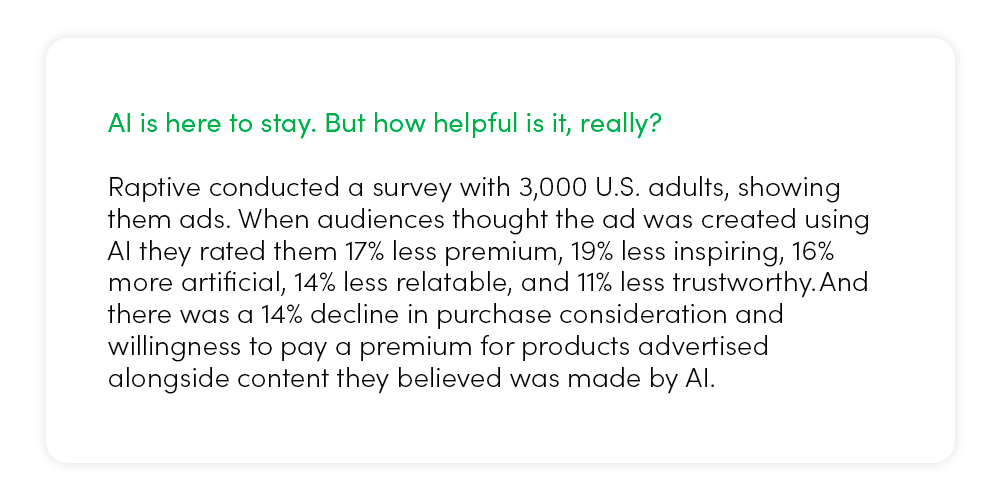
Anna Blender at Raptive explained, “When people thought something was AI-generated, they rated that content much worse across metrics like trust and authenticity, regardless of whether it was really AI-generated or not. That also impacted the ads they saw next to the content, deemed as less trustworthy.”
So not only are people reacting poorly to AI content, they are reacting poorly to content near it, and even when they think it might be AI.
AI In Advertising
Toys “R” Us learned the hard way that using AI isn’t always a win. They partnered with an agency to create the “first-ever brand film created with OpenAI Sora technology.” They took a company who says “Play enables children to develop their imagination, collaborate, problem solve, explore, create or simply express themselves spontaneously.” And they removed the play, the imagination, the collaboration, exploration, creation and spontaneity and replaced it with computers.
Here’s the ad. Watch it at your own risk!
A Toys “R” Us executive called the company’s AI-made video “successful” despite a large online backlash against the brand, as well as filled with AI-generated mistakes such as half-bicycles melting into one another, the uncanny valley humans, and the dead-eyed stare of their own giraffe mascot.
The blowback to AI has become so common that some advertisers are using it to their advantage. Kit Kat Australia and New Zealand created a campaign where they asked AI to create ads for them so they could Take a Break.
Dove created ads renewing its vows to champion real beauty, with a commitment to never use AI to create or distort women’s images.
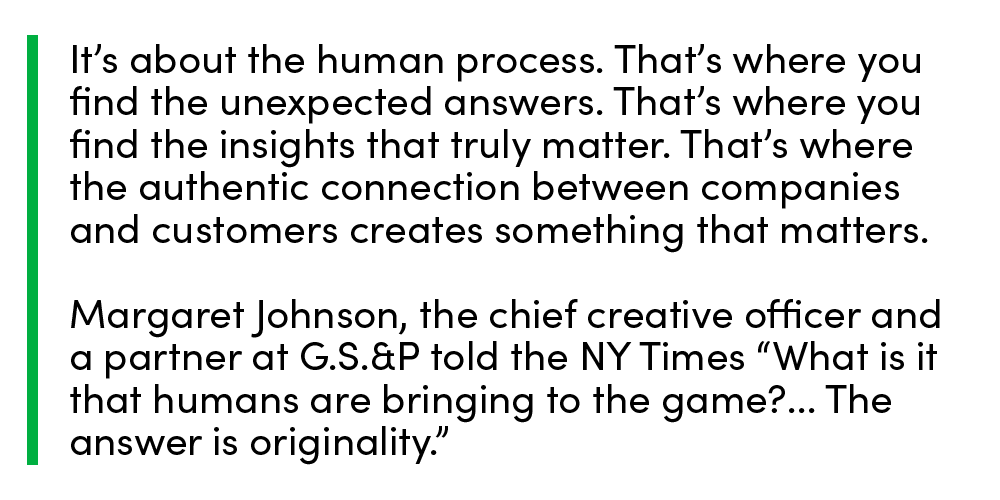
Data Gone Wrong
Companies are also using AI for gathering, organizing, and analyzing data; creating algorithms, RFP responses, and customer predictions.
The problem with that is AI lies.
Not only can AI be wrong; it is confidently wrong. It will offer incorrect answers to questions it doesn’t know, it will invent links or sources, and it can plagiarize incorrect articles.
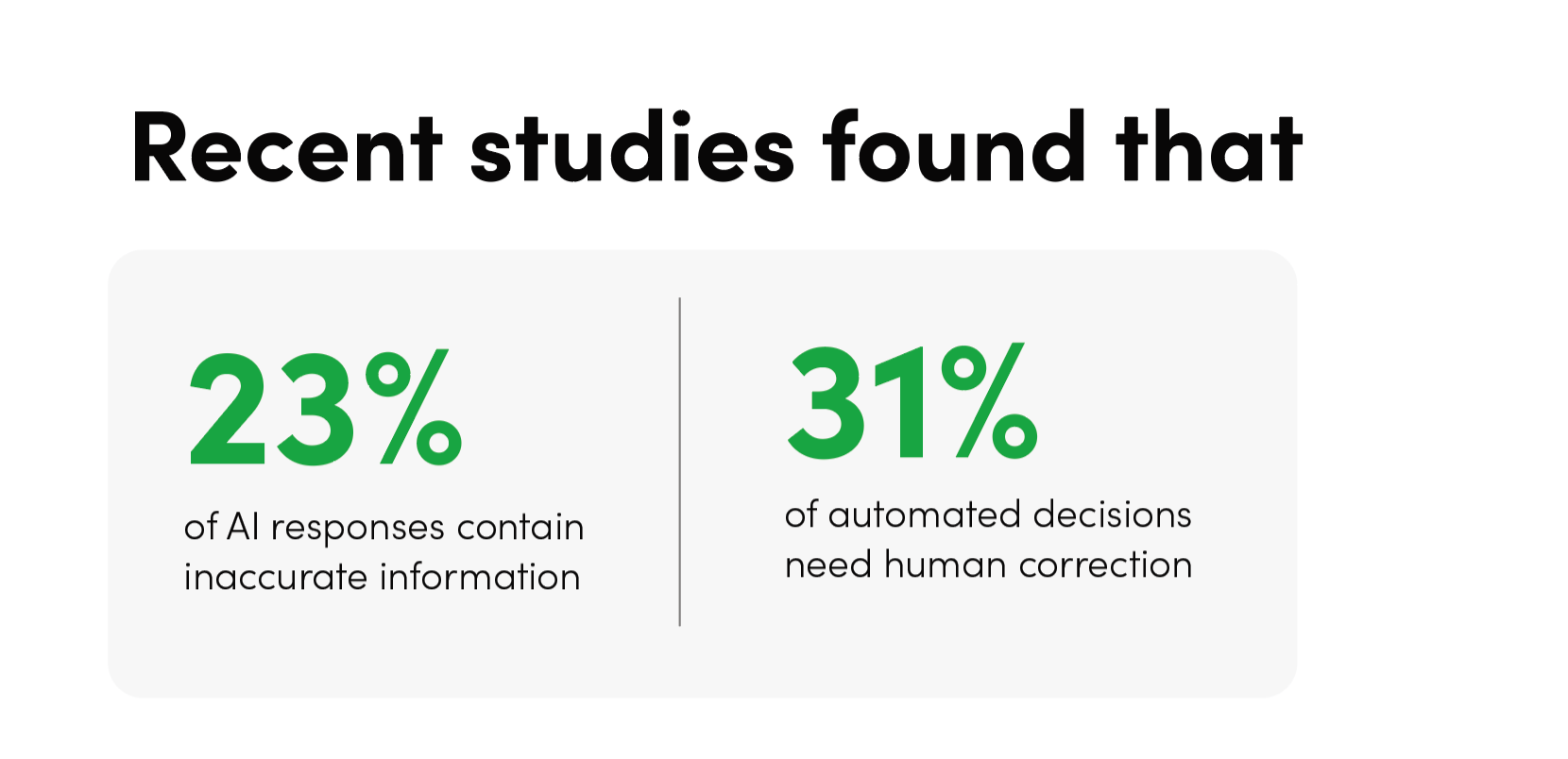
This is because of limited training data, biased algorithms, and the inability to filter noise and normalize data in a relevant and contextually accurate way.
A 2024 McKinsey report found that nearly one-quarter of companies have already experienced negative consequences from AI-generated content.
RFK Jr.’s “Make America Healthy Again” health report, intended as a basis for policymaking and a $500 million funding request from Congress, used AI, resulting in numerous issues. In the original version, at least 21 links to scientific studies or articles were dead. Even in later versions, seven of the 500+ cited studies never existed. Studies on topics such as children’s screen time, medication use, and anxiety were completely fabricated by AI. Experts described the report’s use of AI as “sloppy” and “shoddy.”
As Gary Smith, an economics professor and Senior Fellow at Walter Bradley Center for Natural and Artificial Intelligence says “The fundamental problem is that LLMs are statistically driven text generators, nothing more. They are astonishingly good at this, but they are not designed or intended to understand the words they input and output.”
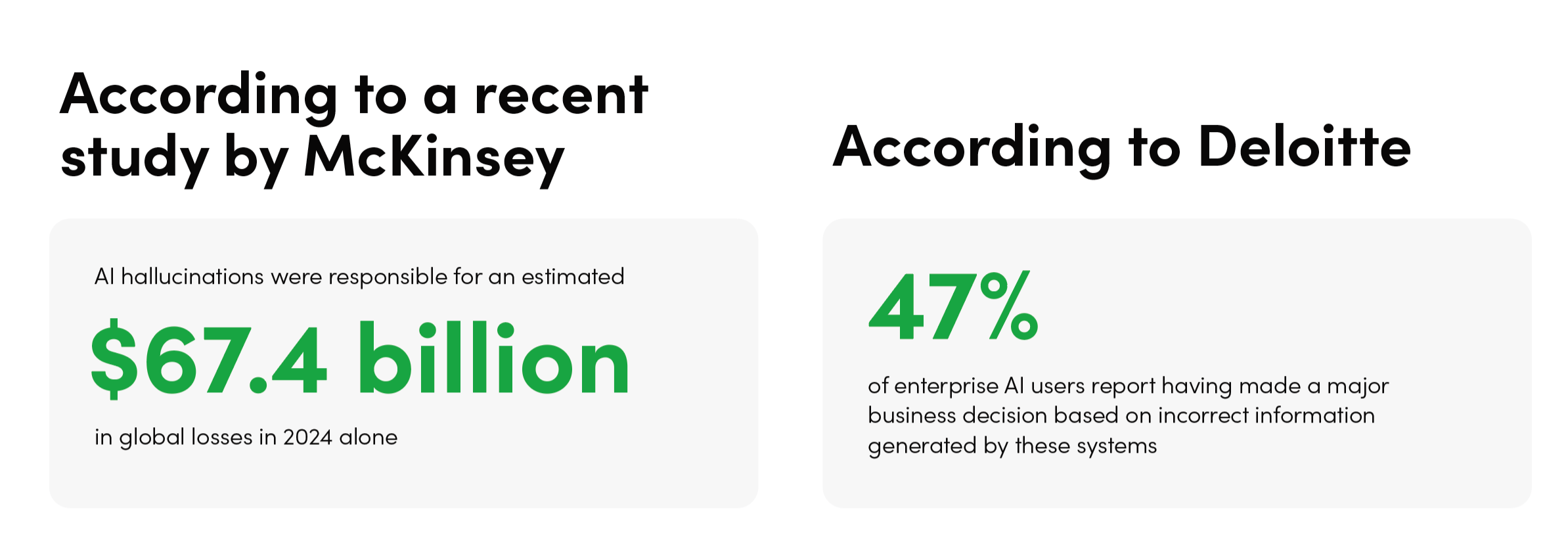
With multiple data sources, and without proper architecture, AI agents can default to “best guesses” rather than truth.
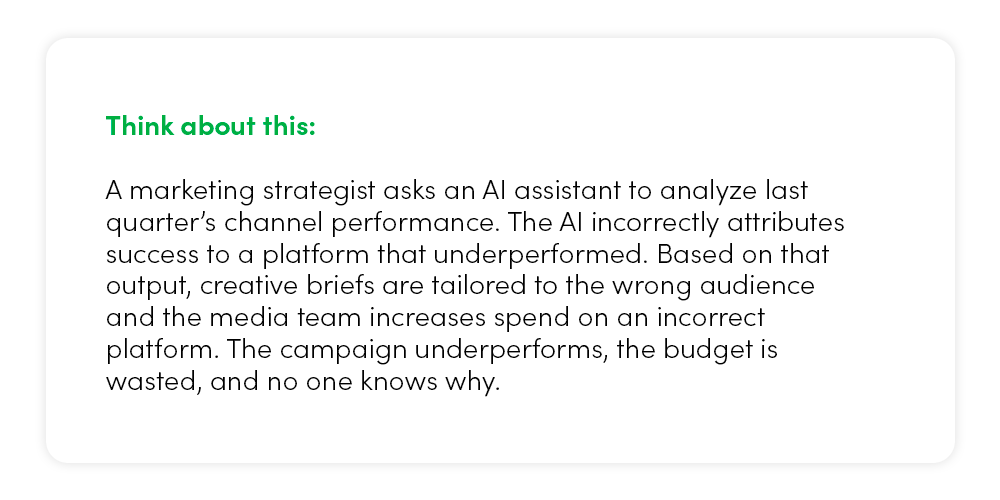
Beware the Algorithm!
In 2022, the Justice Department secured a groundbreaking settlement agreement with Meta Platforms, over allegations of discriminatory advertising.
The algorithm’s goal is to estimate relevance and predict which users are more likely to engage with an ad. But as a byproduct of this, race, gender, and age end up being used as predictive factors, which can lead to biased ad delivery.
Research conducted by Northeastern’s Khoury College of Computer Sciences revealed that Facebook’s ad delivery system skews ad delivery along demographic lines. For example, job ads in the lumber industry are disproportionately delivered to white men, while janitorial positions are more likely to go to Black women.
AI tools may also inadvertently generate content that infringes upon copyrighted materials like trademarks or patents, violating intellectual property rights, consumer protection laws, and even the requirements of the platform you’re advertising on.
https://www.datafeedwatch.com/blog/dangers-of-ai-in-advertising
Staying Relevant in the World of AI
According to HubSpot’s 2025 State of Marketing report, only 47% of marketers say they have a clear understanding of how to use AI in their strategy, and just 48% feel confident measuring its impact.
Here are some reminders to help you stay smart, safe, and confident while utilizing AI.
AI is an assistant, not an employee. AI is no match for your co-workers. Be smart when using AI. Don’t believe it’s smarter than it is. You hired people you trust, have them double-check the data and look everything over. A human gut-check is always worth it when it comes to using AI.
Don’t lose your brand’s humanity. Audiences can sniff out AI easier than ever, and it’s a turn-off. When speaking to your customers do it authentically in a personal voice and tone. Using AI’s help in finding what might be most appealing or intriguing to a customer is great, but never just cut and paste. Put in your brand’s own words.
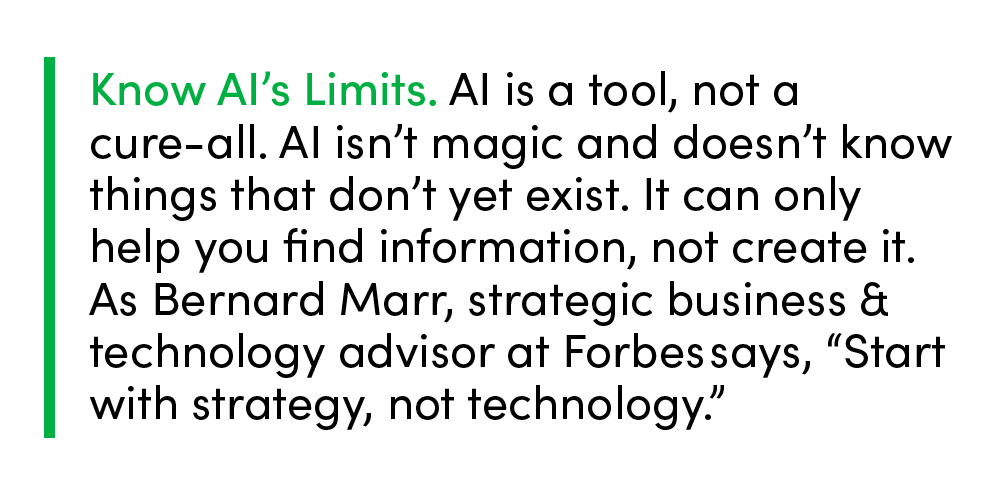
Don’t lose your relevance to convenience. AI is part of our future and while artificial intelligence offers powerful tools to streamline operations and boost efficiency, overreliance can dilute your brand’s uniqueness, human connection, and relevancy. Businesses that blindly adopt AI without aligning it to their core values risk becoming generic and replaceable. Stay relevant by using AI to enhance, not replace, your company’s authentic voice, creativity, and strategic thinking that will set you apart.